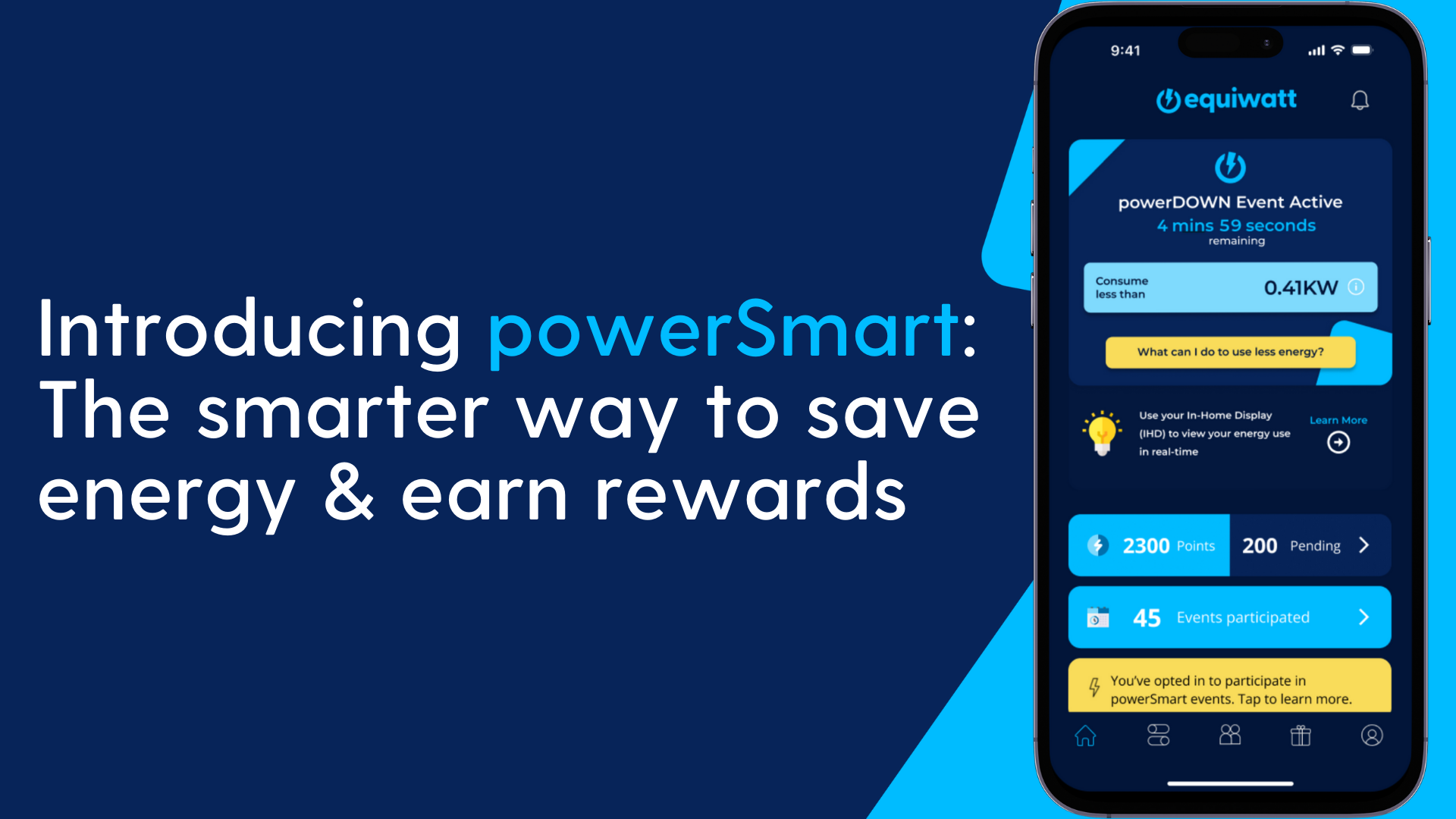Apr 04, 2023
From Coal to Clean Energy: A look back on the Impact of National Grid’s Demand Flexibility Service
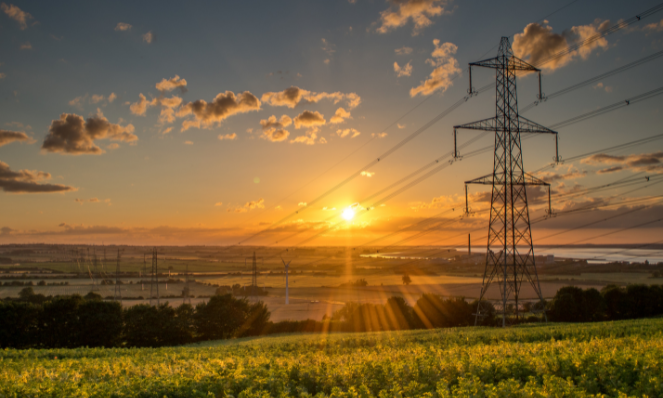
As we look towards a cleaner and more sustainable energy future, one technology that all of us here at equiwatt have long believed has a key role to play in this transition are homeowners with smart meters and smart home devices acting as a collective to reduce demand. Or to put it another way, acting as a ‘virtual power plant’.

By enabling flexible energy use and reducing the need for coal and gas power plants at times of peak demand, virtual power plants (VPPs) can and are helping reshape the energy landscape in the UK and beyond. As some of you will be aware, the equiwatt community has been leading the way in this by participating in our regular flexibility events or ‘equivents’ for several years.
However, despite communities such as ours already playing their part, it wasn’t until November last year that the power of domestic demand flexibility was brought to the masses with the launch of the National Grid's Demand Flexibility Service (DFS).
In this blog post, we want to take a look back at the National Grid's DFS to take a look at its impact and the equiwatt community's role in contributing to the success of the scheme as well as thinking about what should come next if we are serious about really moving away from coal to clean energy.
A bit of background
Before taking a look at the impact made by National Grid's DFS, it is worth giving a bit more context about the scheme for those of you who may not be familiar with it.
Running from November 2022 to March 2023, the National Grid’s DFS was an innovative service aimed at decreasing pressure on the grid and reducing the UK’s reliance on fossil fuels to generate electricity and meet demand at peak times of the day. With rising costs, tighter margins and uncertainty caused in part by Russia’s invasion of Ukraine, the DFS came at a key moment for many of us looking for a way to save energy and reduce our energy bills.
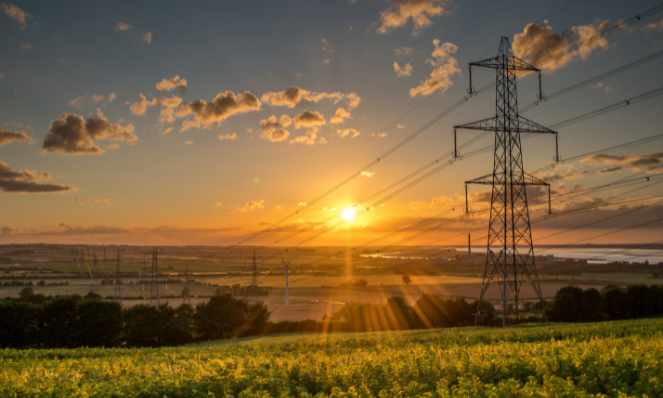
In practical terms, the DFS incentivised households and businesses to shift their energy consumption during peak demand times through financial rewards passed onto them via approved providers (of which equiwatt was one!). For people across the UK, this meant turning off electrical appliances, such as fridges, freezers, ovens, TVs etc. during a series of flexibility events and instead shifting their energy usage to other times in the day. Much like our own equivents, the DFS events lasted between 1-2 hours and happened on any day when energy demand was too high. Although most of the DFS events were essentially tests, there were also 2 ‘real’ or ‘live’ events too.
By encouraging UK homes and businesses to shift their energy usage away from peak times, the program aimed to reduce pressure on the grid and prevent the need for expensive and polluting peak plants to come online or in the worst-case scenario, prevent blackouts from occurring.
As any of you that took part in a DFS-aligned event will know, one of the essential components was the use of smart meters. Despite being installed in homes in the UK since 2016, the DFS was the first time that National Grid used homeowner’s smart meters at scale to manage energy demand and enable homeowners to provide flexibility to the grid. Ultimately helping to reduce overall energy consumption during peak hours.

By incentivising homes financially to shift their energy consumption away from times of peak demand, households were encouraged to adopt more energy-efficient practices and make use of energy-saving technology during peak hours. For example, equiwatt users turned off appliances, paused their Electric Vehicle charging and automated their participation with the help of smart plugs lights via the equiwatt app when prompted by notifications.
How did it go?
At the time of writing, we are still awaiting the full report from National Grid ESO, the DFS programme has already demonstrated some huge positives for all of us working towards a cleaner more flexible grid in the UK and beyond.
Although the whole principle of the DFS scheme is nothing new to the equiwatt community, and the whole idea of domestic demand flexibility (or demand side response) is something that we have been championing and doing for a long time, the scheme has certainly put flexibility into the limelight in a way like never before. The press coverage that the scheme received and the number of big-name energy suppliers that participated in the programme are a really important step in helping make the UK’s energy grid, smarter and greener.
Thanks to the DFS scheme, we were able to share our message and experience with a national audience with our CEO and Founder Johnson, given the opportunity to be interviewed live on Sky News! equiwatt was also featured in several national newspapers, which highlights how people's understanding of their energy use and ways to manage it has grown, thanks in part to the DFS scheme.
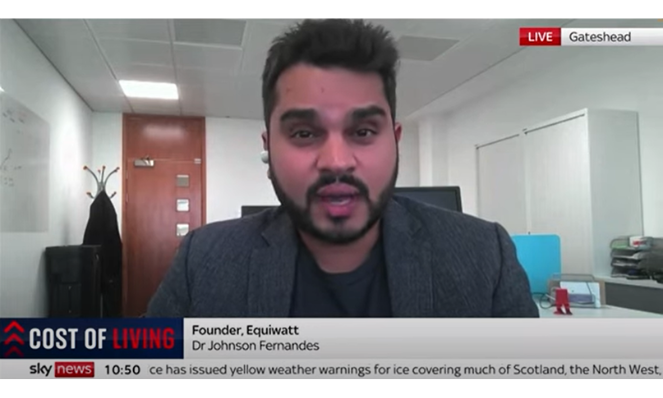
In fact, this interest is evident in the 1.6 million smart meters that took part in the programme with an estimated 80% or 1.3 million of these being residential household smart meters! Here at equiwatt, this increased interest was also something that we experienced, with our community growing by over 50% between the months of November and March alone.
Of course, an increased interest and knowledge of flexibility and how homes can contribute to preventing the need for dirty energy being generated or blackouts from occurring are very important, but what about the scheme's actual impact?
Well, although we don’t have the total figures for energy shifted to times of less pressure just yet, there are some positives on that front. For example, homes taking part in the DFS scheme helped to keep the lights on during two ‘live’ events in January. Moreover, our own equiwatt community participated in 17 DFS-aligned events and helped to shift 1.9 MWh over the course of the scheme, with one user managing to shift 7.2 kWh of electricity in one single event! That is the equivalent of running around 23 fridges for a day!
Although the equiwatt community’s numbers are relatively modest, we are still a relatively small community, especially when compared to the big energy suppliers! However, the potential impact of similar schemes being rolled out at scale is clear to see, especially when you consider there are over 16 million electricity smart meters installed in the UK already, with this number only going to grow as we head towards the rollout completion date in 2025.
Not only does this demonstrate the real impact that homes can have when it comes to reducing carbon emissions and improving grid reliability and resilience but it also emphasises the willingness of UK homeowners to change their behaviour around energy usage when encouraged to do so.

Of course, despite the overriding positives, there are some things that were not quite as good as they could be. As mentioned previously, in return for playing their part, participants were incentivised to take part. These incentives varied depending on the provider. For example, our community earned £23 in points on average* for taking part in DFS-aligned events with us which they could use to claim eGift cards for well-known retailers as well as donating to charity or planting trees. One user even managed to earn £19 worth of points in one event by reducing his energy usage significantly!
However, when there are incentives to be earned, some may inevitably want to game the system. The biggest example of this is a technique used by some DFS participants known as “extreme load-shifting” or “power rinsing”.
This essentially means that some users were deliberately using more energy immediately before an event in order to take advantage of the ‘in-day adjustment’ mechanic used to work out their energy reduction for the event and earn more rewards in the process. With one user reportedly using over 100kWh of electricity (around 10 times the typical daily electricity usage of a UK home) before an event to earn over £200 worth of incentives.
This behaviour is of course completely against the spirit of the scheme and highlights the inevitable imperfections of running a scheme like the DFS for the very first time. However, with an extensive review of the scheme already taking place, we are sure that issues such as this will be ironed out in any future iterations.
Final thoughts
Overall, the National Grid's DFS has clearly demonstrated the potential of smart grid technologies and demand flexibility on a domestic level when it comes to reducing carbon emissions, improving grid reliability and resilience, and stabilising energy prices. With this said, this cannot be an end in itself but merely the start of a new way to manage energy and achieve net zero. The lessons learned must be used to inform future energy policies and initiatives, helping to create a more sustainable and resilient energy system for the future.
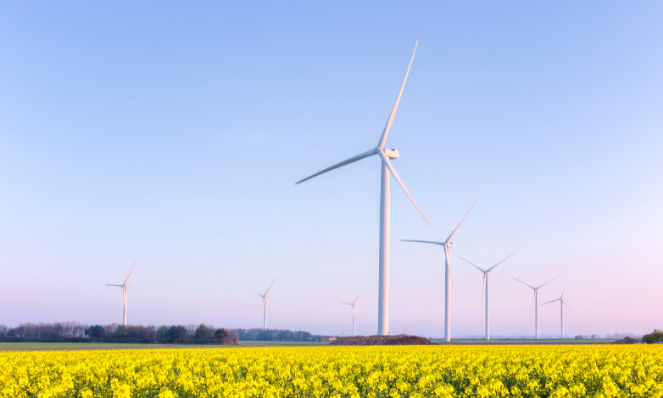
After all, as the demand for renewable energy sources continues to grow, the importance of domestic flexibility programmes, virtual power plants and smart technologies will only increase. These technologies will play a critical role in integrating renewable energy into the grid, making it more reliable and efficient. With over 15 million domestic electricity smart meters already installed in the UK already, the scope of what can be achieved is something that must not be overlooked.
While the DFS has come to an end for many, here at equiwatt it is business as usual for us and our community of users. As we were doing before the DFS scheme launch, we are continuing to run regular flexibility events or ‘equivents’ to reward our users for shifting their energy usage away from peak times.
Want to join us? Download our free app today!
*Figure based on a user earning £1.35 on average per event and taking part in every one of the 17 DFS events that we ran between November and March.









